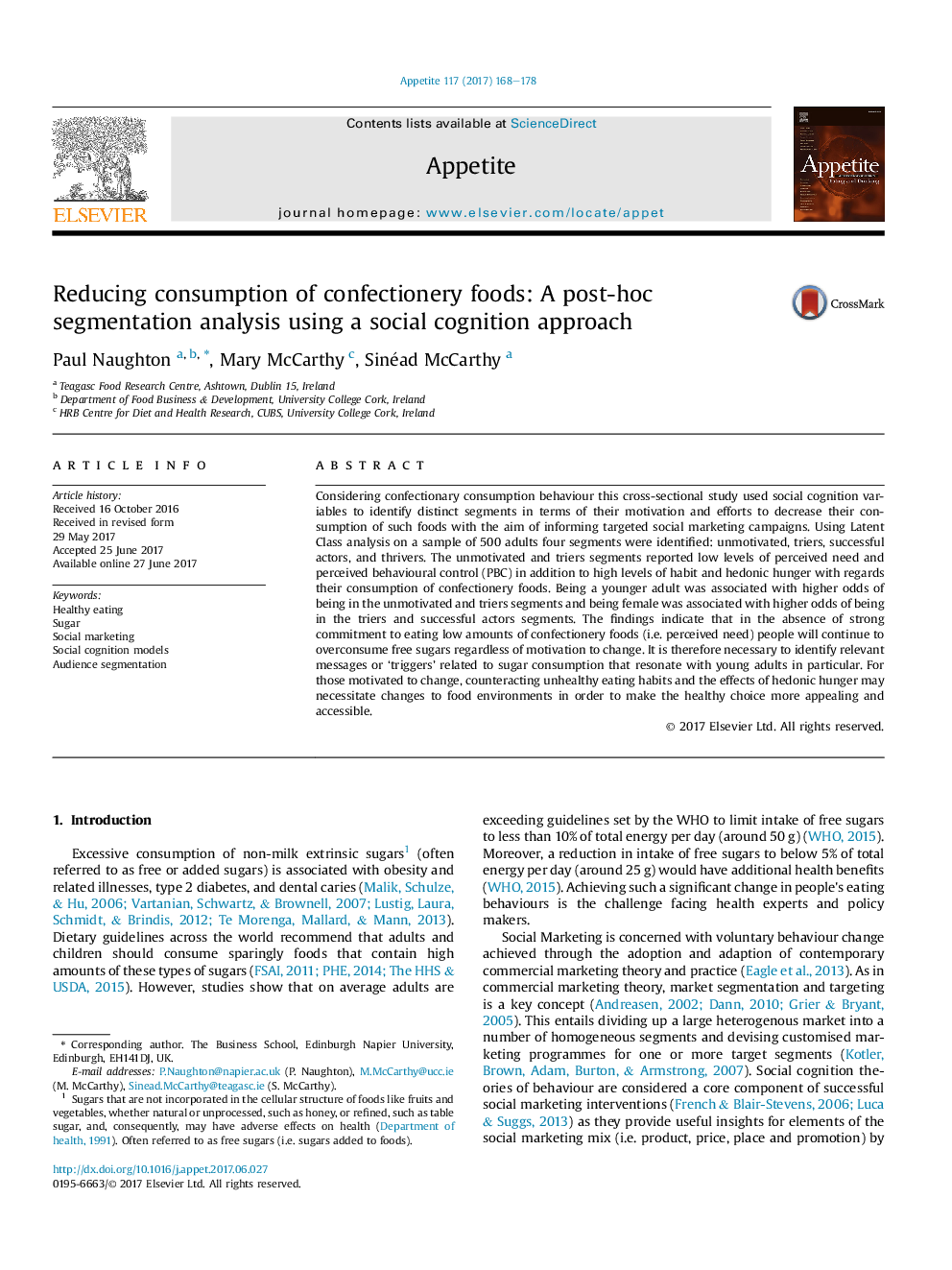ترجمه فارسی عنوان مقاله
کاهش مصرف مواد غذایی قنادی: تجزیه و تحلیل تقسیم بندی پس از آن با استفاده از رویکرد شناخت اجتماعی
عنوان انگلیسی
Reducing consumption of confectionery foods: A post-hoc segmentation analysis using a social cognition approach
| کد مقاله | سال انتشار | تعداد صفحات مقاله انگلیسی |
|---|---|---|
| 121381 | 2017 | 11 صفحه PDF |
منبع

Publisher : Elsevier - Science Direct (الزویر - ساینس دایرکت)
Journal : Appetite, Volume 117, 1 October 2017, Pages 168-178
ترجمه کلمات کلیدی
تغذیه سالم، قند، بازاریابی اجتماعی، مدل شناسی اجتماعی، تقسیم مخاطبان،
کلمات کلیدی انگلیسی
Healthy eating; Sugar; Social marketing; Social cognition models; Audience segmentation;

